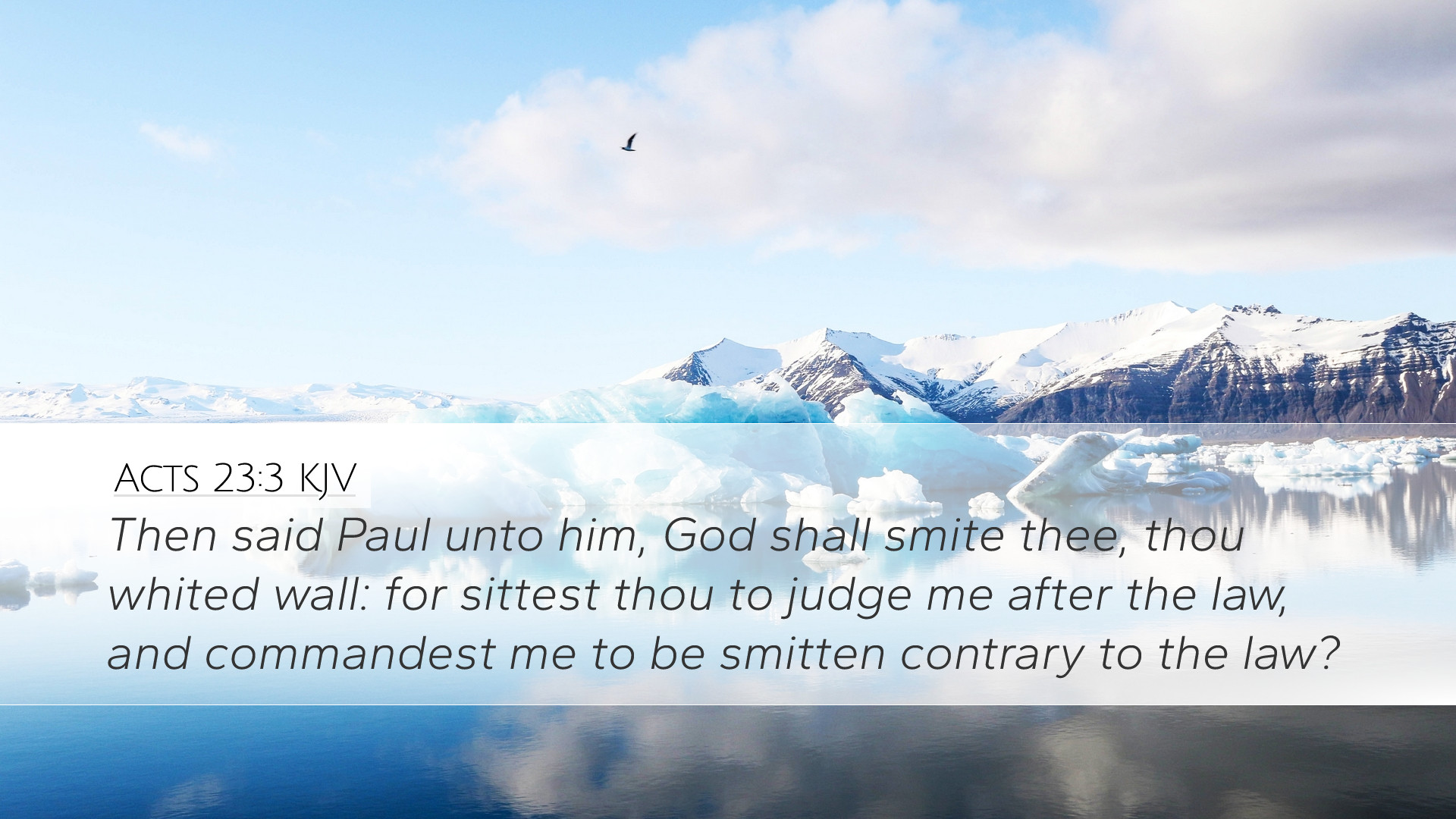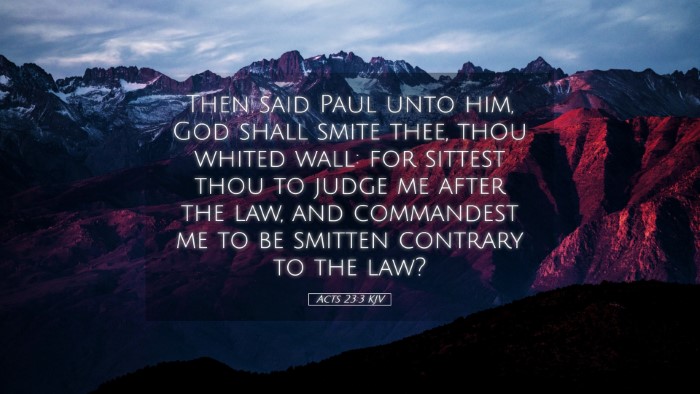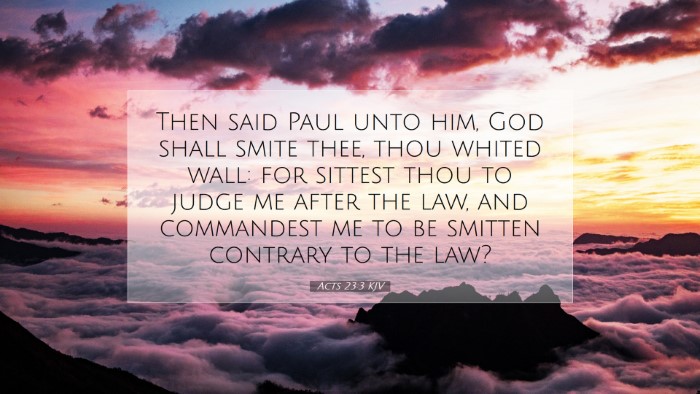Commentary on Acts 23:3
Bible Verse: Acts 23:3 - "Then Paul said to him, 'God is going to strike you, you whitewashed wall! Are you sitting to judge me according to the law, and yet contrary to the law you order me to be struck?'"
Introduction
The verse Acts 23:3 captures a profound moment in the life of the Apostle Paul as he stands before the Sanhedrin. This commentary synthesizes insights from esteemed public domain commentaries by Matthew Henry, Albert Barnes, and Adam Clarke, providing a comprehensive analysis for pastors, students, theologians, and Bible scholars.
Contextual Analysis
Acts 23 describes Paul's defense before the Jewish council after his arrest in Jerusalem. His confrontation reflects the tension between the Gospel's message and the Jewish establishment's authority. Understanding this context is pivotal for grasping the weight of Paul’s words in verse 3.
Matthew Henry's Perspective
Matthew Henry emphasizes the zeal and righteous indignation of Paul in this encounter. He notes that Paul's reference to the high priest as a "whitewashed wall" suggests hypocrisy. A wall, often a symbol of strength and protection, is here marred by a superficial appearance—a theme echoed throughout Scripture concerning religious leaders who fail to uphold true righteousness.
- Hypocrisy: Henry asserts that this insult points to the high priest's failure to administer justice. His outward appearance was clean and dignified, yet his actions were contrary to the law.
- Judgment: The high priest, by ordering Paul to be struck, was acting outside the bounds of the proper judicial process, which further elucidates Paul's condemnation of his actions.
- Boldness in Defense: Paul's fearless confrontation highlights his commitment to speaking the truth, even in the face of adversarial authority.
Albert Barnes' Interpretation
Albert Barnes provides critical insights into the implications of Paul's words, focusing on the socio-political dynamics at play. He describes the historical significance of the Sanhedrin and how Paul, as a former Pharisee, understood their legalistic tendencies yet confronted them courageously.
- Legal Standards: Barnes clarifies that Jewish law stipulated fair treatment and due process, thus highlighting the injustice of the high priest's command to strike Paul.
- Paul's Accusation: The term "whitewashed wall" connotes not only hypocrisy but also impending judgment—a prelude to God’s wrath against corrupt leaders.
- Spiritual Warfare: Barnes posits that this moment encapsulates the struggle between different spiritual realms—the kingdom of God versus the kingdom of darkness manifesting through corrupt religious authority.
Adam Clarke's Exegesis
Adam Clarke dives deep into the phrasing of Paul's proclamation and its implications. He elucidates the term "whitewashed wall," exploring its Old Testament roots and how it echoes the prophetic call to embedded purity and truth.
- Old Testament References: Clarke connects this phrase to Ezekiel's imagery, where God criticizes Israel for external righteousness devoid of internal truth.
- Theological Significance: Clarke points out that Paul's statement reveals God's distaste for religious leaders who are more concerned with their status than with true obedience to Him.
- Character of God: This confrontation serves to illustrate God's justice; He does not overlook the sins of leaders, emphasizing that they will also face His judgment.
Theological Implications
This verse reaches far beyond the immediate confrontation; it touches on themes central to Christian theology:
- Authority and Accountability: Leaders, whether ecclesiastical or civil, are called to a higher standard of accountability before God.
- Righteousness vs. Ritualism: The contrast between true holiness and ritual observance is sharply drawn throughout Scripture, warning modern believers against similar pitfalls.
- Responding to Injustice: Christians are encouraged to stand firm in their beliefs and call out injustice, modeling the boldness exhibited by Paul.
Conclusion
Acts 23:3 serves as a powerful reminder of the need for integrity among leaders in faith communities. The combined insights of Matthew Henry, Albert Barnes, and Adam Clarke unveil the complexity of Paul's words, underscoring the eternal call to genuine piety that reflects the heart of God. For pastors, students, and theologians, this passage encourages a deep dive into both the historical and spiritual lessons derived from Paul's confrontation with authority, which ultimately challenges every believer towards authenticity in their walk with Christ.


